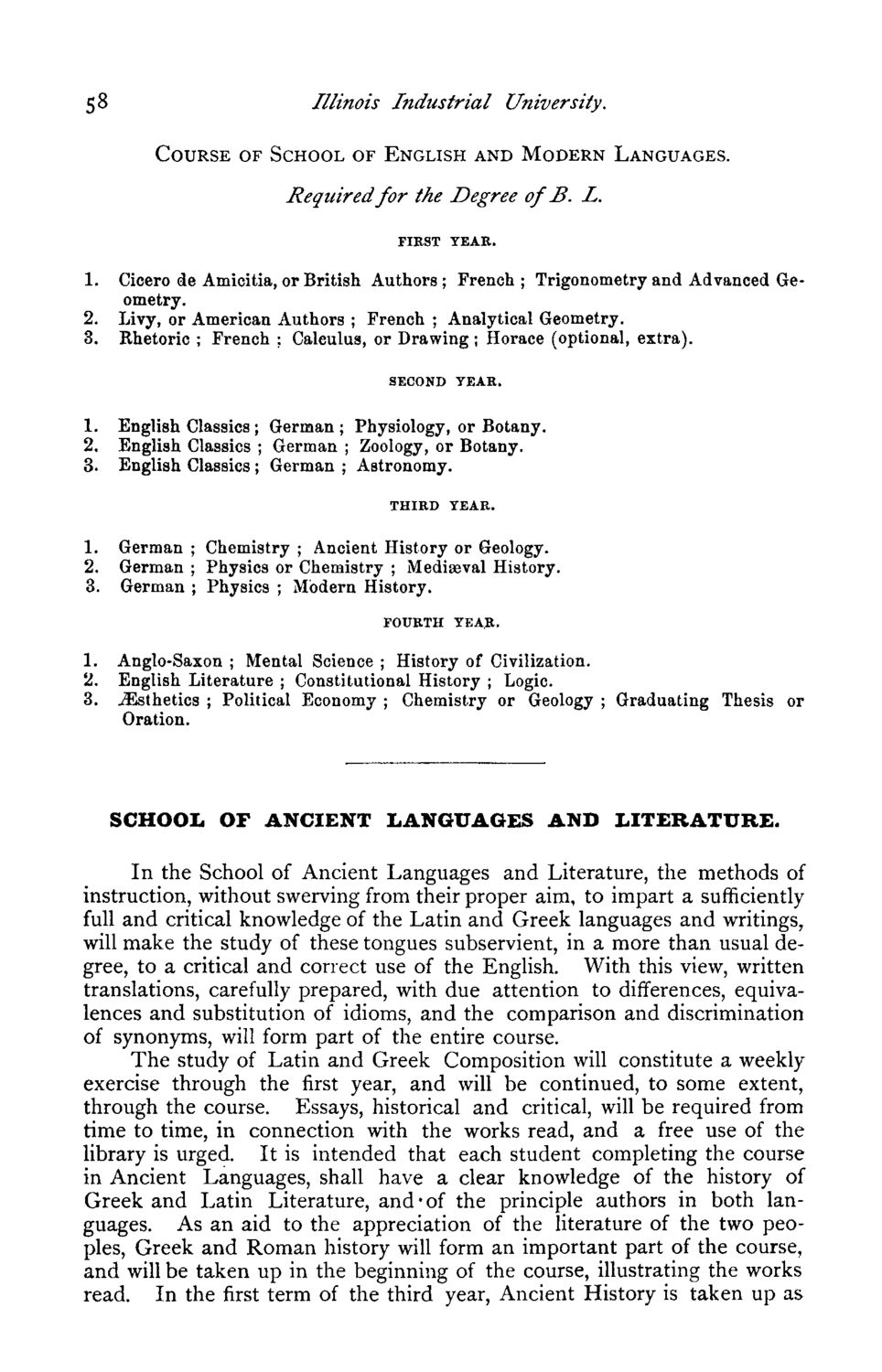| |
| |
Caption: Course Catalog - 1877-1878 Version A
This is a reduced-resolution page image for fast online browsing.

EXTRACTED TEXT FROM PAGE:
58 Illinois Industrial University. COURSE OF SCHOOL OF ENGLISH AND MODERN LANGUAGES. Required for the Degree of B. L. FIKST TEAK. 1. Cicero de Amicitia, or British Authors; French; Trigonometry and Advanced Geometry. 2. Livy, or American Authors ; French ; Analytical Geometry. 3. Rhetoric ; French ; Caleulus, or Drawing; Horace (optional, extra). SECOND YEAR. 1. English Classics ; German ; Physiology, or Botany. 2. English Classics ; German ; Zoology, or Botany. 3. English Classics ; German ; Astronomy. THIRD TEAR. 1. German ; Chemistry ; Ancient History or Geology. 2. German ; Physics or Chemistry ; Mediaeval History. 3. German ; Physics ; Modern History. FOURTH TEAR. 1. Anglo-Saxon ; Mental Science ; History of Civilization. 2. English Literature ; Constitutional History ; Logic. 3. ^Esthetics ; Political Economy ; Chemistry or Geology ; Graduating Thesis or Oration. SCHOOL OF ANCIENT LANGUAGES AND LITERATURE. In the School of Ancient Languages and Literature, the methods of instruction, without swerving from their proper aim, to impart a sufficiently full and critical knowledge of the Latin and Greek languages and writings, will make the study of these tongues subservient, in a more than usual degree, to a critical and correct use of the English. With this view, written translations, carefully prepared, with due attention to differences, equivalences and substitution of idioms, and the comparison and discrimination of synonyms, will form part of the entire course. The study of Latin and Greek Composition will constitute a weekly exercise through the first year, and will be continued, to some extent, through the course. Essays, historical and critical, will be required from time to time, in connection with the works read, and a free use of the library is urged. It is intended that each student completing the course in Ancient Languages, shall have a clear knowledge of the history of Greek and Latin Literature, and-of the principle authors in both languages. As an aid to the appreciation of the literature of the two peoples, Greek and Roman history will form an important part of the course, and will be taken up in the beginning of the course, illustrating the works read. In the first term of the third year, Ancient History is taken up as
| |